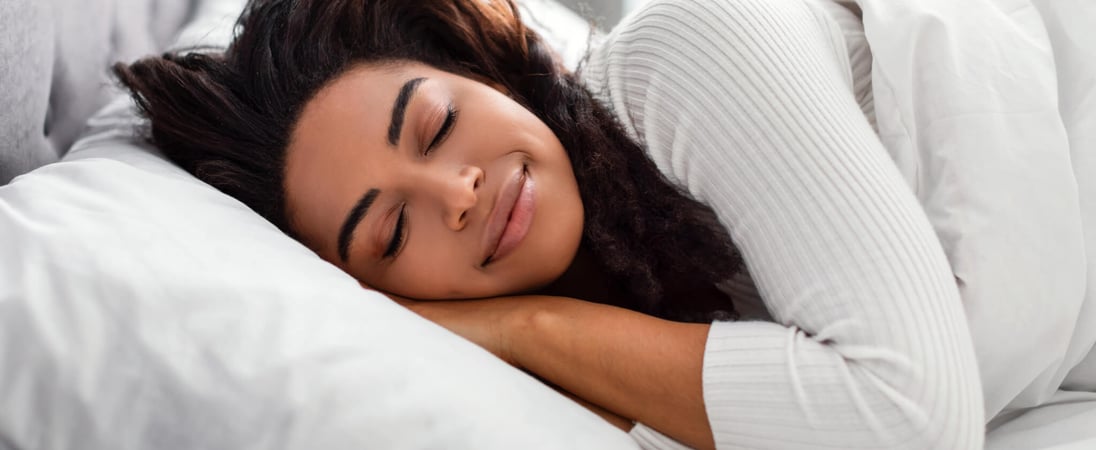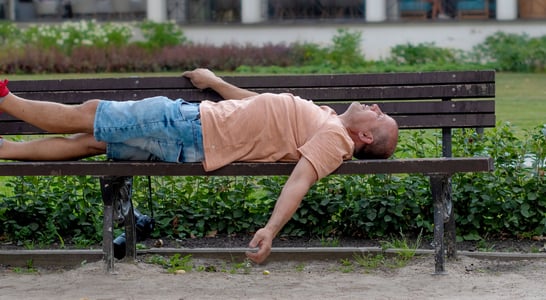
Better Sleep Month
Getting a solid night's rest by adopting simple bedtime habits can leave you feeling refreshed and energized for the day ahead.
Now, more than ever, it seems that culture is at odds with the concept of getting enough sleep. After all, there is always something to do or watch, even in the middle of the night. And the fear of missing out is real!
As doctors and scientists continue to discover the intricate connection between proper sleep and health, recognizing that sleep is as important as diet and exercise, it just makes sense that the topic is regularly brought into the public eye. Better Sleep Month makes a point of raising awareness about the fact that people simply need better sleep to live happy and healthy lives!
History of Better Sleep Month
The Centers for Disease Control (CDC) recommends that an adult gets at least 7 hours of sleep a night, but even that isn’t enough for many people. School aged children and teens need even more–around 8-12 hours. Because lack of sleep can lead to not only a grumpy mood but also health problems such as obesity and heart problems, it’s necessary that people make space to get enough sleep at night.
Better Sleep Month was introduced by the Better Sleep Council (BSC) with the purpose of encouraging individuals to live better lives by getting better sleep. The Better Sleep Council is a nonprofit organization in the United States that was organized in 1978 to promote consumer education around the relationship between sleep and health.
Promoting the idea that sleep is a necessity and not a luxury, Better Sleep Month offers communities, health care providers, and sleep product manufacturers an opportunity to make a month-long campaign for people to focus on sleeping better. Because if all of the people could get better sleep, it’s likely that the world would be a better place for everyone!
How to Celebrate Better Sleep Month
Show some appreciation for those 6,7, or 8 hours a night that are dedicated to sleeping! Get involved with celebrating Better Sleep Month by implementing some of these ideas:
Learn Why Better Sleep Is Important
Take some time out during Better Sleep Month to learn a bit of the science behind the need for better sleep, and then raise awareness by sharing with friends, family members, coworkers and more. Check out some of these important factors regarding why getting better sleep is important for the health:
-
Sleep lets the brain repair itself
Contrary to popular belief that the brain is inactive during sleep, it is actually very busy working through cleaning and detoxifying processes, preparing it for learning, memory and creation.
-
Sleep affects mental health
Sleep deficiency can leave a person at higher risk of depression, suicide, or risky behavior.
-
Sleep has an impact on cardiovascular health
During sleep, the blood pressure lowers, but those who don’t sleep well have high blood pressure for longer, leaving them at risk of heart disease and strokes.
-
Sleep affects stress hormones
Cortisol is particularly affected by sleep, which is great because the body needs a break from this hormone that triggers a fight or flight response and also increases the heart rate.
Get a New Mattress
One of the reasons that some people aren’t getting better sleep may have to do with the quality and age of their mattress. In honor of Better Sleep Month, it might be a good idea to consider whether it is time to get a new mattress. Some of the reasons people should consider it is if their mattress is sagging, if it makes a lot of noise when getting in and out of it, if one of the people sleeping on it wakes up in pain, or if the mattress is over eight years old.
Practice Good Sleep Hygiene
While anyone who isn’t sleeping well is probably interested in getting better sleep, sometimes it can be difficult to know what to do. This is especially true when a person is not sleeping well, so they are tired and perhaps fall into bad habits and unhealthy routines!
Better Sleep Month is here to encourage healthy sleep habits and practices. One of the important things to know about better sleep is that, while there are no guarantees, there are many perfectly natural actions that can be taken that can help people create habits to get better sleep every night.
Some of these practical suggestions for proper sleep hygiene include:
- Go to bed and get up at the same time every day. Establishing a circadian rhythm is extremely helpful in ‘training’ the body regarding when it is time to sleep and when it is time to be awake.
- Keep the room dark and cool. Bodies sleep better in a cool room, about 65 degrees F, so turn the thermostat down. And if the room has light sources, consider room darkening blinds or a sleep mask.
- Remove electronic devices from the bedroom, including televisions, computers, and even smart phones. If a smartphone doubles as an alarm, it’s ideal to get an actual clock, or put the phone somewhere across the room and away from the bed.
- Practice healthy diet and exercise. Tired bodies sleep better, so regular exercise can help with sleep. Also avoiding alcohol, caffeine and large meals in the second half of the day can be beneficial for sleeping well.
Check with a Doctor
Those who struggle to get a healthy amount of quality sleep on a regular basis may have insomnia and should consider consulting with a medical professional. This is especially important for those folks who have medical conditions related to sleep, including sleep apnea. Because sleep is such a vital part of people’s lives and health, it’s important to take it seriously and get a doctor involved if needed!
Looking for other times throughout the year to honor and celebrate the beauty of sleep? Check out these other days and events that offer an ideal opportunity to keep sleep in the forefront of your mind all the year through, including World Sleep Day in March, Festival of Sleep Day in January and National Public Sleeping Day in February.
Better Sleep Month FAQs
How to sleep better?
Better sleep often comes through practicing sleep hygiene, like going to bed at the same time each day; sleeping in a cool, dark room; removing electronic devices from the room and limiting caffeine intake.[1]
Is it better to sleep without a pillow?
Those who sleep on their back or side may sleep better with a pillow, but front sleepers may choose to sleep without a pillow.[2]
Which side is better to sleep on?
Some experts suggest that sleeping on your left side might be better as it may improve the blood flow while opening up the airways naturally.[3]
Can better sleep help you lose weight?
Some studies show that people who sleep better at night are likely to intake fewer calories during the day, as well as affecting their metabolism positively.[4]
Does better sleep improve mental health?
Poor sleep has been associated with an increase in negative emotional responses to stressors as well as a decrease in positive emotions.[5]
Also in ...
View all holidaysWorld Password Day
Protect your privacy and self by taking some time to update your passwords. Avoid pet or family names, important dates, and other identifying information.
National Purebred Dog Day
Many purebred dogs offer invaluable services to mankind, from sheepherding to hunting to guarding and search-and-rescue, so give some love to purebreds.
School Principals’ Day
Organize an event or write a card to show your appreciation for the educators that run our schools. School principals work hard to make kids’ lives and educations better.
We think you may also like...
National Public Sleeping Day
Sometimes we all need a quick snooze, and there's no shame in catching some Z's wherever you can. Just make sure to set an alarm!
National Walking Day
Take in the fresh air and soak up the scenery — a great way to get exercise, clear your mind, and explore the world around you.








